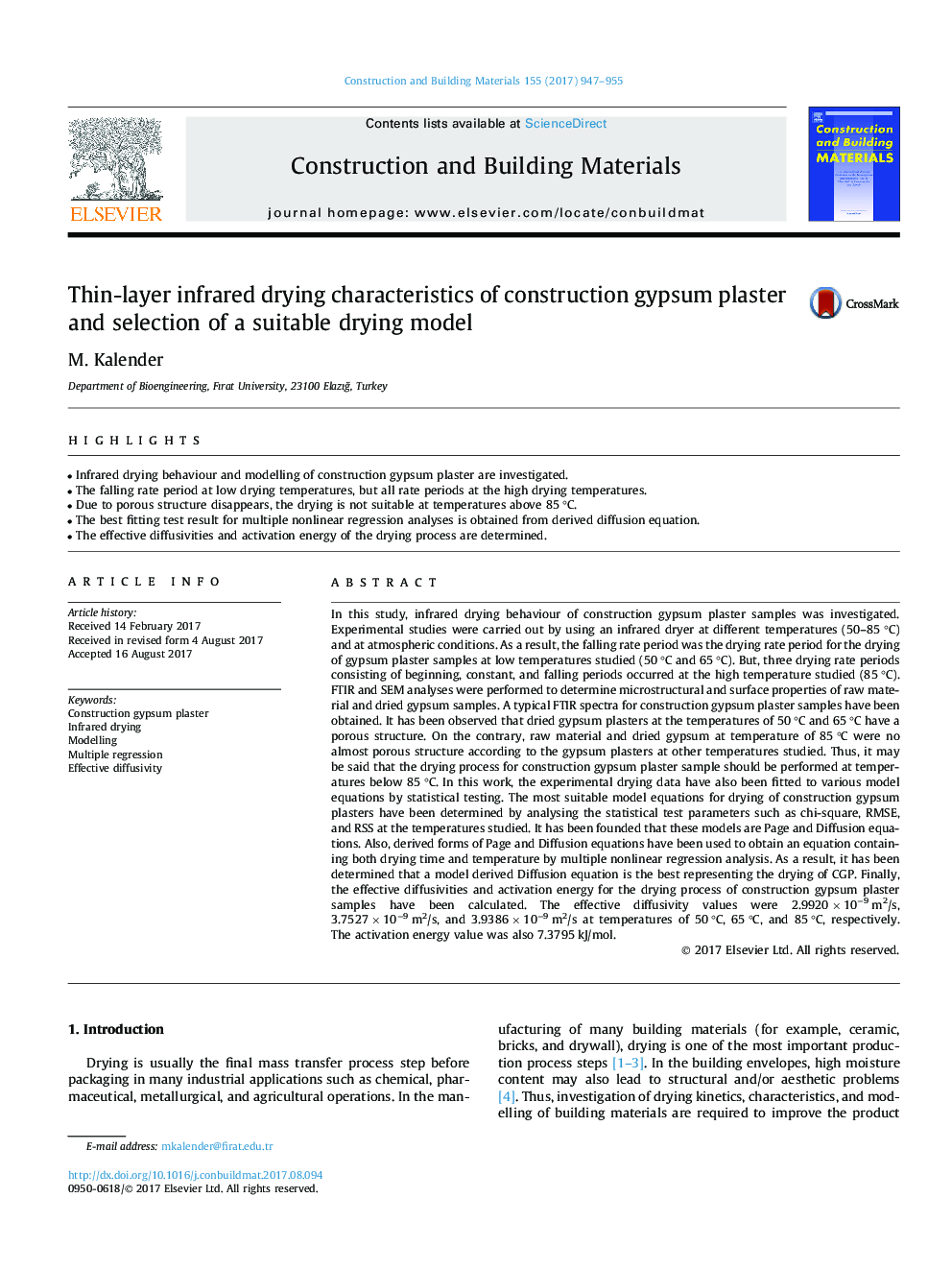| Article ID | Journal | Published Year | Pages | File Type |
|---|---|---|---|---|
| 4918135 | Construction and Building Materials | 2017 | 9 Pages |
Abstract
In this study, infrared drying behaviour of construction gypsum plaster samples was investigated. Experimental studies were carried out by using an infrared dryer at different temperatures (50-85 °C) and at atmospheric conditions. As a result, the falling rate period was the drying rate period for the drying of gypsum plaster samples at low temperatures studied (50 °C and 65 °C). But, three drying rate periods consisting of beginning, constant, and falling periods occurred at the high temperature studied (85 °C). FTIR and SEM analyses were performed to determine microstructural and surface properties of raw material and dried gypsum samples. A typical FTIR spectra for construction gypsum plaster samples have been obtained. It has been observed that dried gypsum plasters at the temperatures of 50 °C and 65 °C have a porous structure. On the contrary, raw material and dried gypsum at temperature of 85 °C were no almost porous structure according to the gypsum plasters at other temperatures studied. Thus, it may be said that the drying process for construction gypsum plaster sample should be performed at temperatures below 85 °C. In this work, the experimental drying data have also been fitted to various model equations by statistical testing. The most suitable model equations for drying of construction gypsum plasters have been determined by analysing the statistical test parameters such as chi-square, RMSE, and RSS at the temperatures studied. It has been founded that these models are Page and Diffusion equations. Also, derived forms of Page and Diffusion equations have been used to obtain an equation containing both drying time and temperature by multiple nonlinear regression analysis. As a result, it has been determined that a model derived Diffusion equation is the best representing the drying of CGP. Finally, the effective diffusivities and activation energy for the drying process of construction gypsum plaster samples have been calculated. The effective diffusivity values were 2.9920 Ã 10â9 m2/s, 3.7527 Ã 10â9 m2/s, and 3.9386 Ã 10â9 m2/s at temperatures of 50 °C, 65 °C, and 85 °C, respectively. The activation energy value was also 7.3795 kJ/mol.
Related Topics
Physical Sciences and Engineering
Engineering
Civil and Structural Engineering
Authors
M. Kalender,
